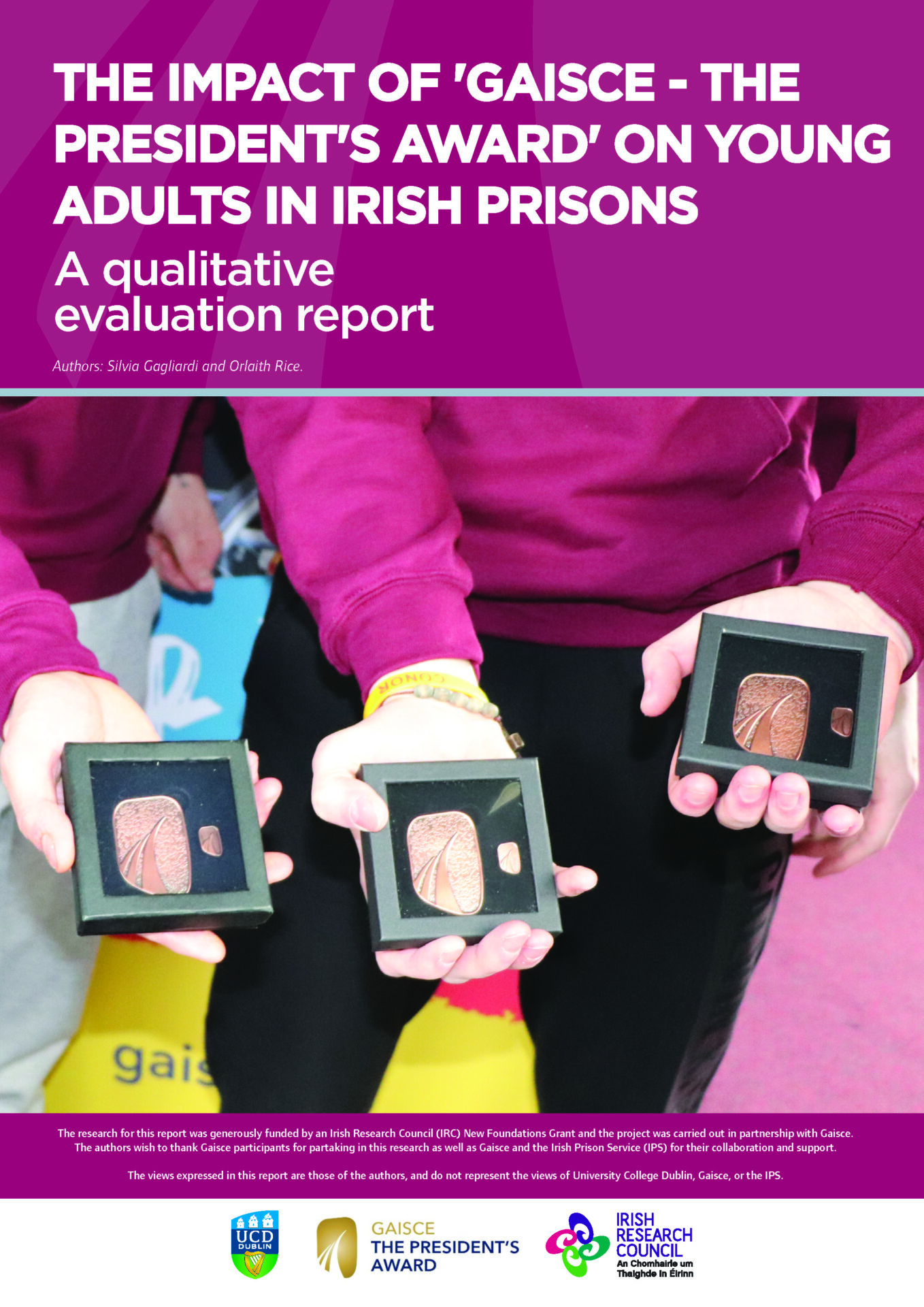Authors:
Silvia Gagliardi
PhD in Human Rights. Visiting Research Fellow at University College Dublin.
Orlaith Rice
ERC Doctoral Scholar in Law 2020 – 2024. PhD Candidate at University College Dublin.
“The research for this report was generously funded by an Irish Research Council (IRC) New Foundations Grant and the project was carried out in partnership with Gaisce. The authors wish to thank Gaisce participants for partaking in this research as well as Gaisce and the Irish Prison Service (IPS) for their collaboration and support. The views expressed in this report are those of the authors, and do not represent the views of University College Dublin, Gaisce, or the IPS.”
In April 2022 Silvia Gagliardi and Orlaith Rice at UCD completed an evaluation report on ‘The Impact of Gaisce – The Impact of Gaisce – The President’s Award on Young People in Irish Prisons’.
Building on previous research on Gaisce, this report makes space for a vulnerable and marginalised group to provide their own feedback on the programme they participate in while in custody. Both strengths and limitations in undertaking a positive youth development programme in prison are identified, and recommendations detailed.
The research methodology was qualitative in nature and involved conducting ten semi-structured, qualitative interviews with young adults in custody in Ireland in 2021. Prior to data collection, the research protocols underwent a rigorous ethical review and were approved separately by the Human Subjects Ethics Board at University College Dublin, the Irish Prison Service (IPS), and Gaisce.
One guiding principle in developing and formulating the interview questions was not to traumatise/re-traumatise the participants, who are considered a ‘vulnerable group’ in research. With this key principle in mind, questions related to: prisoners’ awareness of Gaisce prior to and during their confinement; their motivation to join Gaisce; how Covid-19 restrictions affected their participation; what achieving a Gaisce Award meant for them; the most challenging and most useful parts of Gaisce; their recommendations on how to improve Gaisce for people in custody; how their relationships with others developed as a result of their participation; changes in attitude, self-esteem, trust, and problem-solving; and their hopes for the future.
While the lack of positive relationship development while undertaking Gaisce in prison – particularly in the context of Covid-19 – appears as the most obvious weakness of the programme, research participants’ testimonies of Gaisce in prison generally point to a transformative experience that can be life-changing. Yet, participation in self-development and educational programmes cannot be expected to change someone’s life alone.
It can only be one element of a holistic youth justice strategy that encompasses interventions to prevent people from offending by breaking cycles of violence, inequality, and abuse while giving them hope and pathways for a different future.
Key Findings (Summarised):
-
Accessibility: Participants found Gaisce straightforward, but awareness of it before prison was low.
-
Added Value: Some gained new skills and confidence, but others saw it as a box-ticking exercise.
-
Relationships: Gaisce helped improve relations with staff, but peer connections were limited, especially during Covid-19.
-
Attitude: Many reported greater maturity and confidence, though this often began before joining Gaisce.
-
Wellbeing: Gaisce provided structure, distraction, and a boost to mental health.
-
Self-efficacy: Participants felt pride, achievement, and higher self-esteem, with prestige linked to the President’s Award.
